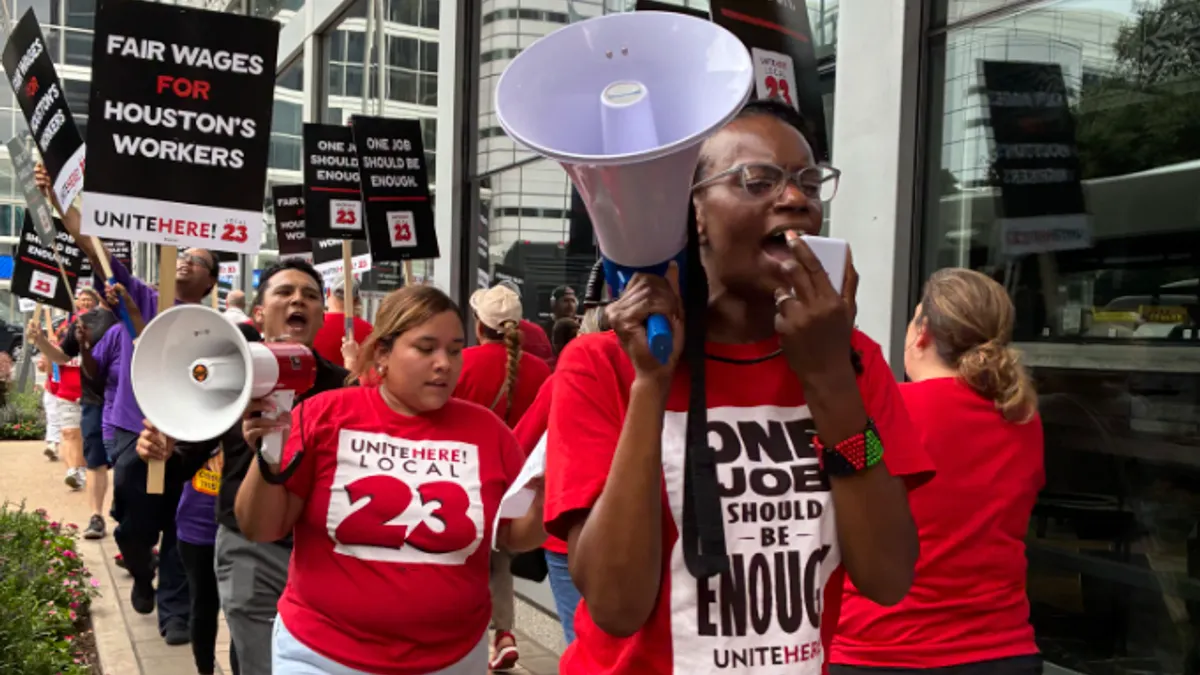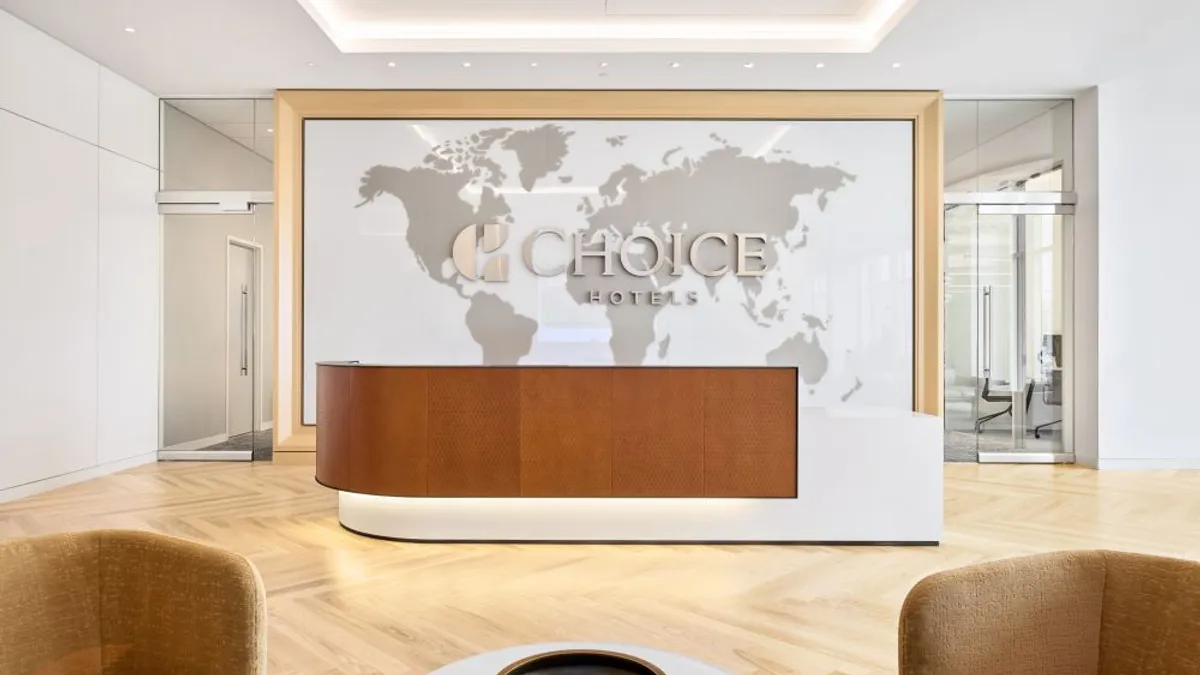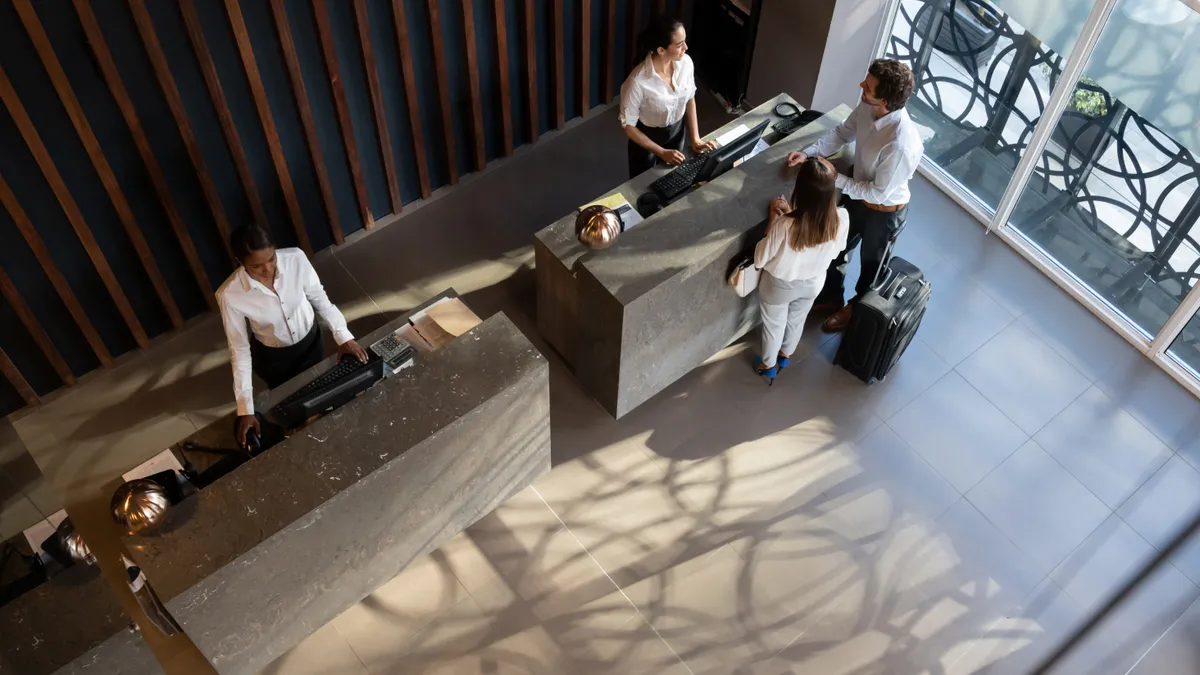The following is a guest post from Deborah Friedland, managing director and hospitality practice leader at EisnerAmper. Opinions are the author’s own.
Although U.S. hotels enjoyed a relatively promising start to 2025, marked by moderate growth in ADR and stable occupancy rates, the sector is expected to see a modest decline in performance through the rest of this year. After several years of strong post-pandemic recovery, most industry experts anticipate 2025 demand, occupancy and RevPAR to be flat or slightly down compared to full-year 2024.
The current downturn can be linked to several factors. Spending on leisure and business travel is being impacted by an uncertain U.S. economic outlook, mostly due to persistent inflation, lackluster employment numbers and higher travel costs, resulting in shorter hotel stays. A decline in government travel related to mass layoffs of federal employees is impacting demand both for transient and group lodging. International inbound travel is also well below historical levels, and the World Travel & Tourism Council estimates total international visitor spending in the U.S. will decline by $12.5 billion year on year as a result of geopolitical concerns.
Meanwhile, profit margins are expected to continue their decline in 2025 as labor expenses rise, impacting full-service properties more than select-service hotels. Owners and operators are also experiencing higher expenses for a wide range of purchases, including operating supplies, food, insurance, construction materials and taxes. In addition to inflation, trade policies play a role in elevating costs across hotels’ supply chains.
Prepare for change
The outlook is not one of unrelenting doom and gloom, however. The industry may catch a break if the Federal Reserve lowers interest rates, as many expect, making loans more affordable. Lower interest rates also could result in increased consumer spending on discretionary activities such as travel. But this, on its own, is not enough to reverse ongoing economic trends.
So, what is an owner or operator to do when faced with external economic and market challenges? Hotel operators, owners and asset managers should focus on the things that are under their control.
Hoteliers should critically evaluate both the income and expense lines of their profit and loss — and bear down on the levers that affect revenues, expenses and operating performance.
Explore strategies to drive revenue
On the revenue-generation side, management should be strategic and creative in launching initiatives to attract more guests, enhance their experience and promote longer stays. Hotel managers could consider launching an incentive program to encourage corporate clients who attend a conference to stay an extra day.
Hotel leaders can also encourage employees to upsell and cross-sell services to hotel guests, and explore unique ways to boost food and beverage sales through loyalty programs, social media efforts and local partnerships.
Take a hard line on operating expenses
Management also needs to aggressively attack costs. While most owners and operators successfully reduced operating expenses during the pandemic, expense levels rebounded as the economy, and businesses, recovered.
Seek out ways to cut expenses by purchasing supplies in bulk, trimming staff if possible, outsourcing functions like property accounting and scrutinizing equipment leases as well as vendor pricing on high-usage items. Challenge property tax amounts annually, and reprice insurance policies as they come due.
Sharpen marketing
While it may be tempting to cut back on marketing costs, hoteliers should be selective when evaluating the marketing budget. Carefully evaluate specific costs including professional memberships, subscriptions and event spending with an eye toward return on investment.
Hotel managers will probably want to maintain spending, albeit prudently, on activities designed to solicit corporate and group accounts, for example. Sales teams should be encouraged to be creative, while keeping costs low.
Re-examine the physical footprint
Hotel owners and managers should assess each aspect of the hotel’s facilities in terms of its contribution to profitability. Consider closing unprofitable food and beverage outlets or reducing hours of operation if demand cannot sustain a full-service operation. Consider repurposing underutilized meeting space or leasing out excess space to a local business.
Invest in growth and efficiency
Even in times of economic stress, prudent investments can pay dividends. Hotel pros should consider improvements to differentiate their property from others in the market and potentially attract more guests.
Hospitality leaders should explore opportunities to invest in technology solutions with a high return on investment, particularly ones that optimize operations and reduce cost. Digital advances such as contactless check-in and AI-driven solutions — including chatbots, dynamic pricing systems, data-driven customer insights platforms and back-office automation — may enhance operational efficiency, productivity and the guest experience.
The hotel sector is no stranger to challenging times and difficult economic cycles. Owners and operators can have confidence that, having survived the pandemic, the industry has the agility, resiliency and innovative spirit to weather a short-term downturn and position itself for future growth.


















